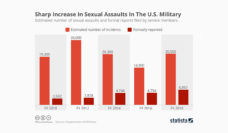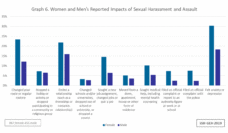Sexual assault survivors carry many burdens. Beyond enduring the initial violation, survivors have historically been pressured by criminal policies into reporting any physical evidence of injury within a regulated window of time. Depending on the state and jurisdiction, this window has been as short as 24 to 48 hours after an assault.
Physical evidence increases the chances that a perpetrator will be convicted. But many survivors face significant barriers to immediately reporting for medical attention. In addition to fear, guilt, and embarrassment, survivors may face a continued threat of safety, lack of transportation, and their own addictions which they may not want to divulge.
A 24-hour emergency response clinic for sexual assault victims in Grand Rapids, MI looked at the physical injuries of over 2,000 women over 10 years. They found that one third of women had injuries visible past 96 hours from the time of assault. Indeed some injuries, such as bruising, were often not apparent until after 24 hours. Adolescents, in particular, had a harder time seeking medical attention within 24 hours and had more severe genital injuries.
The United States Department of Justice updated its standards in 2016, recommending extension of evidence collection up 120 hours after an assault for vaginal injuries. However, oral, anal, and bite mark injury reporting standards still vary from 24 to 96 hours.
The figure and study show that many physical injuries persist beyond recommended reporting times. This evidence suggests that criminal reporting policies should consider expanding to a 120-hour window for all injuries, rather than just vaginal. Public resources and crisis hotlines can continue to educate survivors of their rights to delay reporting and access medical treatment. Whether or not a survivor decides to press charges, medical assistance for infection prophylaxis, pregnancy prevention, and counseling are available at any time.
Databyte via National Best Practices for Sexual Assault Kits: A Multidisciplinary Approach. United States Department of Justice, 2016. Data visualization by Tasha McAbee.
If you have been affected by sexual violence and wish to speak with your nearest sexual assault service provider, call the National Sexual Assault Telephone Hotline (RAINN) at 1-800-273-8255 or visit rainn.org.














